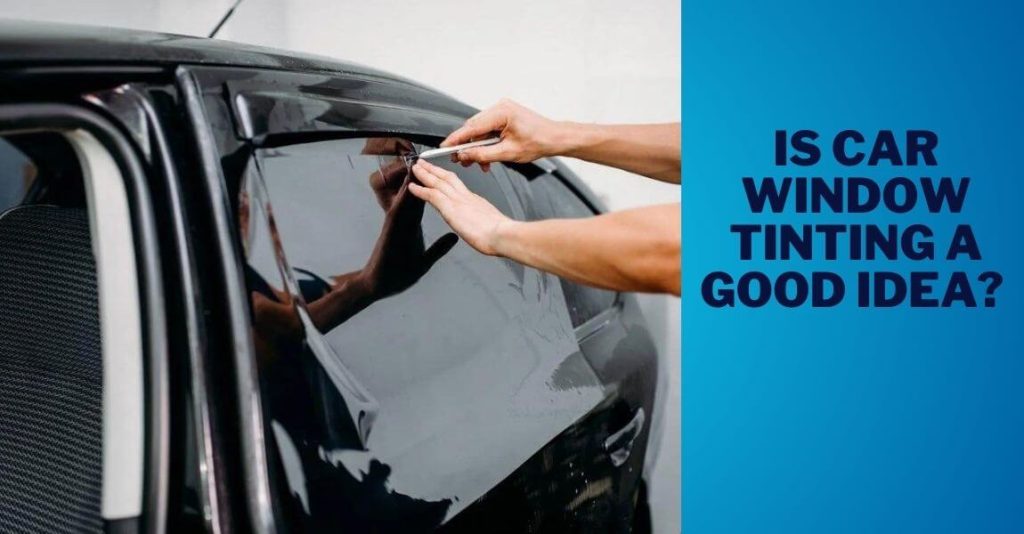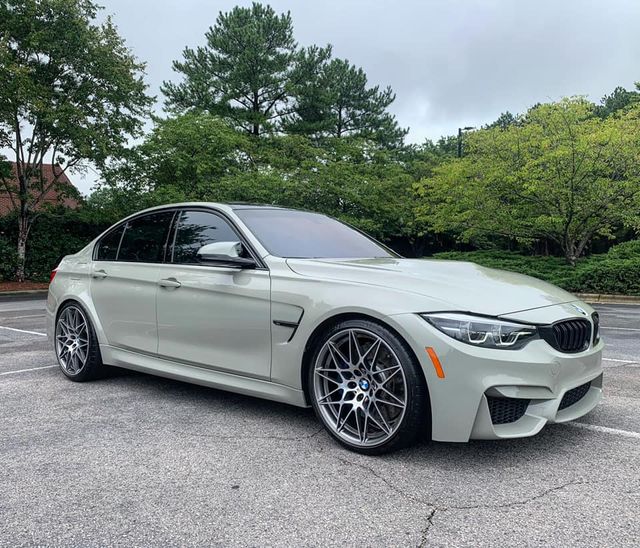Last Updated on September 10, 2023 by Mark S. Taylor
Car window tinting is a good idea as it enhances privacy and reduces uv exposure while driving. It also enhances the overall appearance of the car and improves its insulation.
Window tinting offers protection against harmful sun rays and helps maintain the car’s interior. Besides, it reduces glare, making driving safer and more comfortable. Many car owners opt for window tinting to enjoy the benefits it provides. In addition to enhancing privacy and reducing uv exposure, window tinting can provide a sleek and stylish look to your car.
Moreover, it can help keep the car’s interior cool, protect it from sun damage, and improve fuel efficiency by reducing the need for air conditioning. To sum up, car window tinting is indeed a good idea for various reasons.

Contents
The Benefits Of Car Window Tinting
Enhanced Privacy And Security:
- Car window tinting provides an added layer of privacy, shielding your vehicle’s interior from prying eyes. Whether you’re parked or driving, you can enjoy a sense of seclusion.
- Tinted windows also deter potential thieves by making it challenging for them to see inside your car and identify any valuables.
- This increased privacy and security can offer peace of mind, especially when you’re on the go or parked in unfamiliar areas.
Protection From Harmful UV Rays:
- Car window tinting blocks harmful ultraviolet (UV) rays from penetrating your vehicle’s windows.
- UV rays can cause skin damage and increase the risk of skin cancer. Tinted windows act as a barrier, preventing these harmful rays from reaching you or your passengers.
- By reducing UV exposure, car window tinting helps maintain a safe and healthy environment inside your vehicle.
Improved Interior Comfort:
- Car window tinting helps regulate the temperature inside your car by reducing the amount of heat that enters through the windows.
- The film used in tinting prevents the sun’s rays from warming up your car’s interior, ensuring a more comfortable driving experience.
- This can be particularly beneficial during hot summer months, helping to keep your vehicle cool and minimizing the need for excessive air conditioning.
Prevention Of Interior Fading And Cracking:
- Tinted windows act as a shield against the sun’s harsh rays, preventing them from damaging your vehicle’s interior.
- Prolonged exposure to sunlight can cause fading, cracking, and discoloration of your car’s upholstery and dashboard.
- By adding a layer of protection, window tinting helps preserve your car’s interior, extending its lifespan and maintaining its value.
Glare Reduction For Safer Driving:
- Car window tinting significantly reduces glare from the sun, headlights, and other reflective surfaces.
- Glare can be distracting and dangerous, impairing vision and increasing the risk of accidents.
- With tinted windows, you can enjoy clearer visibility, especially during bright sunlight or while driving at night.
Added Style And Aesthetics:
- Car window tinting enhances the overall look of your vehicle, giving it a sleek and sophisticated appearance.
- With various shades and hues to choose from, you can customize the level of tint to match your style preferences and complement your car’s exterior.
- Apart from the practical benefits, tinted windows add a touch of elegance and individuality to your vehicle’s aesthetics.
Remember, car window tinting offers numerous benefits, including enhanced privacy and security, protection from harmful uv rays, improved interior comfort, prevention of interior fading and cracking, glare reduction for safer driving, and added style and aesthetics. Explore these advantages and decide whether car window tinting is a good idea for you.
Factors To Consider Before Tinting Your Car Windows
Car window tinting has become a popular choice among car owners for various reasons. Not only does it enhance the aesthetic appeal of your vehicle, but it also offers several practical benefits. However, before you jump on the tinting bandwagon, there are a few important factors to consider.
This article will guide you through the key aspects to keep in mind before getting your car windows tinted.
Local Laws And Regulations
It is crucial to familiarize yourself with the local laws and regulations regarding car window tinting in your area. Different regions have their own rules and restrictions on the darkness and reflectiveness of window tints. Violating these regulations could lead to fines or even legal trouble.
Therefore, make sure to research and abide by the tinting limits set by your local authorities.
Choosing The Right Tinting Material And Shade
When it comes to car window tinting, one size definitely does not fit all. There are various types of tints available, including dyed, metallic, and ceramic films. Each type has its own set of characteristics and advantages. Additionally, tints come in different shades, ranging from lighter to darker options.
Consider your specific requirements, such as heat reduction, privacy, and uv protection, before selecting the right tinting material and shade that best suits your needs.
Evaluating Professional Tinting Services
The quality of the tint installation plays a significant role in its long-term performance and appearance. It is essential to choose a reputable and experienced professional tinting service that uses high-quality materials and employs skilled technicians. Look for reviews, check out their portfolio, or seek recommendations from friends or family to ensure you are getting top-notch service.
Remember, a poorly installed tint can lead to bubbling, peeling, or even reduced visibility.
Understanding Warranty And Maintenance
Before proceeding with car window tinting, make sure you understand the warranty terms offered by the tint manufacturer and the installer. Warranties can vary, so pay attention to what is covered, including issues like bubbling, discoloration, and defects. Additionally, inquire about the recommended maintenance and care instructions for your tinted windows.
Proper maintenance can help prolong the lifespan of your tint and keep it looking its best for years to come.
Car window tinting can be a great addition to your vehicle, but it is essential to consider certain factors. Familiarize yourself with local laws, choose the right tinting material, evaluate professional services, and understand warranty and maintenance requirements. By taking these factors into account, you can make an informed decision and enjoy the benefits of car window tinting while staying within the boundaries of the law.
Frequently Asked Questions About Car Window Tinting
Car Window Tinting: Frequently Asked Questions
Thinking of tinting your car windows? You’re not alone! Car window tinting has become increasingly popular over the years, offering numerous benefits such as enhanced privacy, heat reduction, and protection against harmful uv rays. But before you make a decision, it’s essential to have all your questions answered.
In this section, we’ll address some commonly asked questions about car window tinting to help you make an informed choice.
Is Car Window Tinting Legal In My Area?
Different regions have varying laws and regulations concerning car window tinting. Before you proceed, it’s crucial to understand the rules in your specific location. Here are a few points to consider:
- Tint darkness: Most jurisdictions have restrictions on the darkness level of window tint, commonly measured using the visible light transmission (vlt) percentage. Check local laws to ensure compliance.
- Front windshield tinting: While tints on side and rear windows are usually allowed to a certain extent, many areas prohibit or restrict tinting on the front windshield for safety reasons. Familiarize yourself with the specific laws applicable to your area.
- Reflectivity: Some jurisdictions also regulate the reflectivity of window tints. Make sure to comply with any guidelines regarding reflectivity to avoid potential legal issues.
How Long Does The Tinting Process Take?
The duration of the window tinting process can vary depending on several factors, including the number of windows being tinted, the complexity of the installation, and the experience of the installer. However, here’s a rough estimate to give you an idea:
- Small sedans or compact cars: Tinting all windows may take around two to four hours.
- Larger vehicles or suvs: The process for tinting can take around four to six hours or more.
- Keep in mind that these are approximate time frames, and it’s best to consult with a professional installer to get a more accurate estimate based on your specific vehicle and requirements.
What Type Of Window Tint Should I Choose?
When it comes to choosing the right window tint for your car, there are various options available, each with its specific characteristics and benefits. Here are a few commonly used types:
- Dyed film: This type of tint uses multiple layers of dye to create a non-reflective and aesthetically pleasing look. It offers heat and uv ray protection but may not be as effective in reducing heat as other types.
- Metallic film: Metallic tints contain metalized layers that provide superior heat reduction and can reflect a significant amount of sunlight. However, they may interfere with electronic devices such as gps or radio signals.
- Ceramic film: Ceramic tints are known for their excellent heat rejection properties without interfering with electronic devices. They offer high clarity and reduce both heat and uv rays effectively; however, they can be more expensive.
- Carbon film: Carbon tints are a popular choice as they provide good heat and uv protection while maintaining high visibility. They are less likely to fade over time compared to other types.
Can I Tint My Windows Myself, Or Should I Hire A Professional?
- While there are diy window tinting kits available, it’s generally recommended to hire a professional for the best results. Here’s why:
- Expertise: Professional installers have the necessary skills and experience to ensure a proper and accurate installation, minimizing the risk of bubbles, creases, or peeling.
- Warranty: Many reputable window tinting companies offer warranties on their work, providing you with added peace of mind in case of any issues with the tint.
- Legal compliance: Professionals are familiar with local regulations and can help you choose the right type of tint that adheres to the laws in your area.
- Time and convenience: Tinting a car can be a time-consuming process, requiring precision and attention to detail. By hiring a professional, you can save time and have the job done efficiently.
How Do I Maintain And Clean Tinted Windows?
To keep your tinted windows in top condition, it’s important to follow proper maintenance and cleaning techniques. Here are a few tips:
Wait before cleaning: Allow newly tinted windows to cure for at least a week before cleaning them to avoid damaging the tint.
Use appropriate products: Avoid abrasive cleaners or those containing ammonia, as they can cause the tint to deteriorate or bubble. Instead, opt for mild, non-ammonia-based cleaners and soft microfiber cloths.
Gently clean: When washing your tinted windows, use a gentle touch and avoid applying excessive pressure. Wipe in a straight motion, and never use a razor blade or any sharp objects to remove dirt or residue.
Regular maintenance: Regularly inspect your tinted windows for any signs of damage, such as scratches or peeling. Address any issues promptly to prevent further damage.
Now that we’ve addressed some of the frequently asked questions about car window tinting, you can make an informed decision about whether it’s the right choice for you. It’s always advisable to consult with a professional tinting service for personalized advice based on your requirements and local regulations.
Frequently Asked Questions Of Is Car Window Tinting A Good Idea?
What is the disadvantage of window tint?
The primary disadvantage of window tinting is that it can potentially violate local laws and regulations. If the tint level on your car windows exceeds the legal limit in your area, you may face fines or penalties. Another disadvantage is that extremely dark tinting can reduce visibility, especially at night, which can be a safety concern. Additionally, low-quality or improperly applied tint may bubble, peel, or discolor over time, diminishing its aesthetic and functional benefits.
How long does tint last on a car?
Car window tinting reduces heat and blocks harmful uv rays from entering your vehicle. This helps maintain a cooler interior, protects your upholstery from fading, and prolongs the lifespan of your car’s interior components.
Does Car Window Tinting Affect Visibility While Driving?
Properly installed car window tinting should not significantly affect visibility during daylight hours. However, it is important to choose the appropriate level of tint darkness, as excessive tinting can hinder visibility, especially at night or in low light conditions.
Conclusion
To wrap it up, there’s no denying that car window tinting is a good idea for various reasons. It not only enhances the aesthetic appeal of your vehicle but also offers several functional benefits. The tinted windows protect you from harmful uv rays, reduce glare, and increase privacy.
They also help in regulating the temperature inside your car, making it more comfortable during those scorching summer days. Additionally, window tinting adds an extra layer of security by reinforcing the glass and making it harder to break. It also safeguards your valuables from prying eyes.
So, whether you’re thinking about improving the look of your car, boosting your privacy, or creating a safer and more comfortable driving experience, car window tinting is undoubtedly a good investment. Don’t hesitate to explore the various options available and find the perfect tint for your vehicle.

